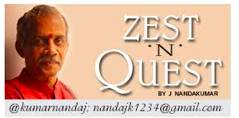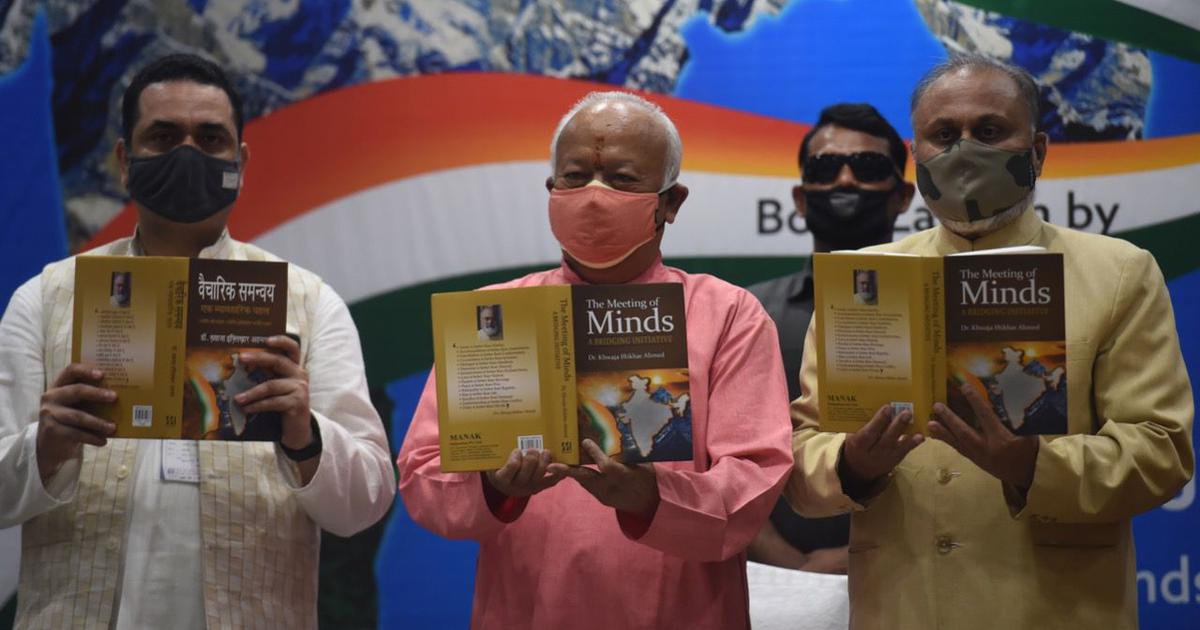
There was much ado about Param Pujya Sarsanghchalak Dr Mohanji Bhagwat’s remarks at a book releasing function organized by some Muslim intellectuals. Some people who are not aware of the Sangh’s philosophy or have not known the Sangh from close quarters had tried to drive home the message that the Sarsanghchalak had made a departure from its core belief system. This isn’t correct.
In the last column, I mentioned about how Jnanpith Award winner Akhitham Achuthan Namboothiri gave a new acronym to Rashtriya Swayamsevak Sangh – Swa-RaSa — by shuffling the order of these the words Swayamsevaka Rashtriya Sangh. Swa-rasa in Samskrit means ‘innate nectar’ or essence. The Sangh represents the essence of Sanatana Dharma or Hindutva. One of the core beliefs of Sanatana Dharma or Hindutva is – abhaya(freedom from fear). All our Gods and Goddesses are depicted with Abhaya Hasta. We never feared an idea or philosophy on the other hand we have welcomed all, respected and tried to assimilate it them if that had something to offer. Even when we did not accept it, we never tried to annihilate it. We gave them space. That is why our Rishis said: “Aano bhadrah kritavo yantu viswathah” – Let noble thoughts come to us from all sides. This is because we have been taught that nobody has a monopoly over the concept of Truth. Hindutva has always promoted pluralism — Ekam Sat Viprah bahuta vadanti(Truth is one but wise men call it differently)is cornerstone of its philosophy. Noted film director Ali Akbar once stated: “While Semitic religions are mere books, Sanatana Dharma is a massive library. It’s a university of ideas.”
In a recent interview, senior pracharak Mananiya Ranga Hariji explained this very succinctly. He stated: “There is no single Hindu religion. Hinduism is a conglomeration of religions. However, Hindutva includes even things that are irreligious. Even Charvaka is part of Hindutva. And hence Jawaharlal Nehru in his Autobiography said, “No one in India will have the courage to claim that irreligious Charvaka is not a Hindu.” So, Hindutva is not Hinduism. If Hindutva is called Hinduness there will be less confusion. While talking, rather than using Sanskrit word for one and English word for the other, we must use the words Hinduism and Hinduness. Or else, say Hindu religions and Hindutva.”
In an interview to Dr Saifuddin Jeelany, journalist and a noted Arabic scholar, on the ‘Muslim problem’ in February 1971, RSS second Sarsanghchalak Param Pujya Guruji said, “…teach history as it is. Set right the present distortions. If there was aggression from the Muslim invaders in the past, say so, and also that the aggressors were foreigners and have nothing in common with the Muslims here. Let our Muslims here say that they are of this land and that the past aggressors and their aggressions are not part of their heritage. Instead of being taught what is true, the Muslims now are taught the distorted version. Truth cannot be hidden for long. …‘Indianisation’ does not mean making all people Hindus. Let us realise and believe that we are all children of this soil coming from the same stock, that our forefathers were one, and that our aspirations are also one. This is all, I believe, the meaning of ‘Indianisation’.”
I think after reading Guruji’s interview, there won’t be any confusion. To cut the story short, Dr Mohanji was only reiterating only what Guruji had already stated. It was a call for assimilation. The PEW report on Indian Muslims should be viewed in this perspective. The West’s experiment with Multiculturalism has failed. Indianisation or cultural assimilation is the way forward.


















Discussion about this post